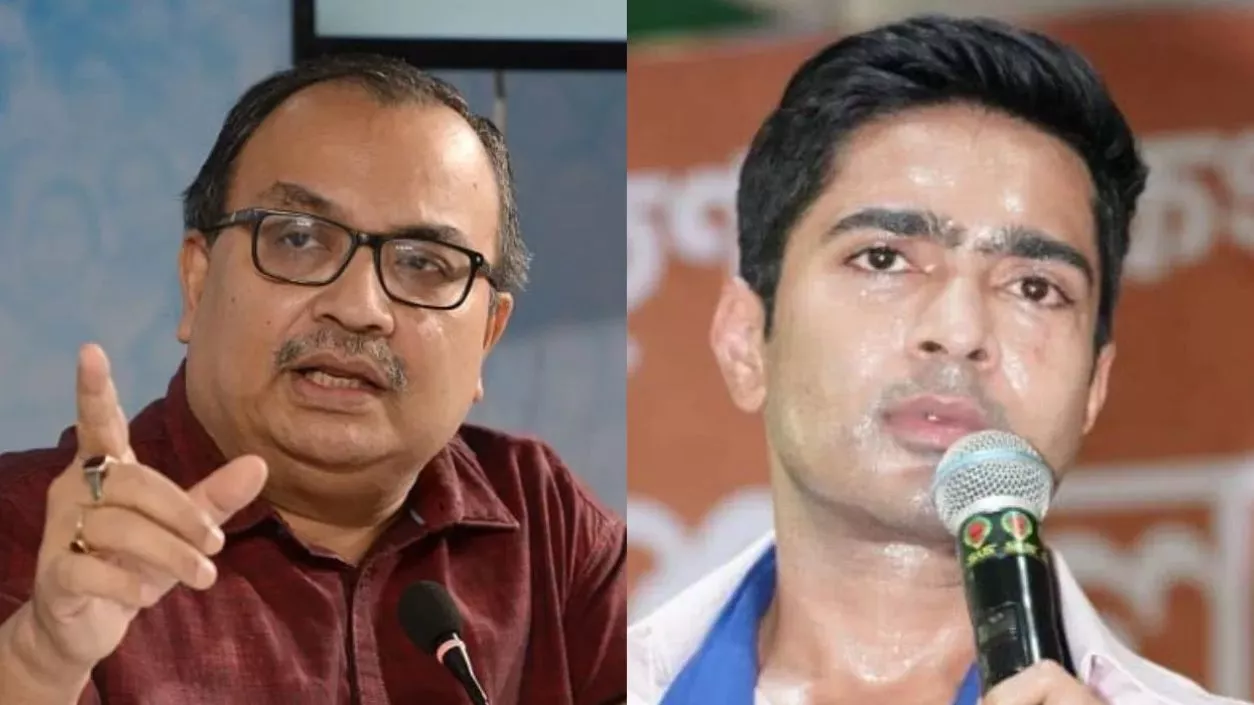.gif)
.gif)

The Trinamool Congress (TMC) is facing internal discord following a dispute between two key leaders, Kunal Ghosh and Abhishek Banerjee, over a public boycott call. The controversy began when Kunal Ghosh, a senior TMC leader and spokesperson, publicly urged the party to boycott certain artists who had criticized Mamata Banerjee, the Chief Minister of West Bengal. Ghosh alleged that these artists had used offensive language against Mamata Banerjee and the TMC, spreading false information, and inciting division among party supporters. He specifically named artists who had been vocal in their criticism and suggested that their participation in TMC events could hurt the emotions of the party’s workers and supporters.
Ghosh further clarified that his call for a boycott was aimed at those artists who, according to him, had resorted to abusive language and false narratives targeting the TMC leadership. He distinguished between peaceful, democratic protests and what he described as “planned vulgarity” intended to slander the party. Ghosh emphasized that his stance reflected the emotions of the TMC workers who felt insulted by these attacks. He also stated that such artists, due to their actions, should be excluded from participating in events organized by the TMC, asserting that their presence at party events would cause unrest among party workers.
The situation escalated when Abhishek Banerjee, the All India General Secretary of the TMC and Mamata Banerjee's nephew, publicly contradicted Ghosh’s position. In a statement that sparked further tension, Banerjee questioned whether anyone within the party had authorized such a boycott, directly challenging Ghosh’s remarks. Banerjee stated, "Has anyone from the party said anything? Have you seen any notice? Has Mamata Banerjee or I, as the General Secretary, said anything?" His comments appeared to dismiss Ghosh’s call, signaling a clear disagreement between the two leaders on how to handle dissent and criticism from within the arts community.
Following Banerjee’s remarks, Ghosh took to social media to clarify his position. In his post, Ghosh reiterated that his call for a boycott was not aimed at peaceful protesters but at those who had crossed the line by using offensive language against Mamata Banerjee and the TMC. He clarified that his intention was to distinguish between democratic protests and actions that he considered as deliberate attacks on the party and its leadership. Ghosh further stated that his stance was in line with the sentiments of many TMC workers, who felt disrespected by the harsh criticisms from the artists involved. He also reaffirmed that the final decision on such matters lay with the highest party leadership, particularly Mamata Banerjee.
Earlier, Ghosh had made an explicit distinction between acceptable forms of protest and what he perceived as slanderous and inflammatory remarks. He wrote that while protests and criticisms could be legitimate, any actions that involved spreading false information or using derogatory language against the party leadership and supporters were not acceptable. In his previous statement, Ghosh had also clarified that opposition parties and citizens had every right to express their concerns, but he specifically called for a boycott of artists who, in his view, had insulted the TMC and its leadership. Ghosh urged that such individuals should not be invited to any TMC events, particularly in the presence of party workers and supporters.
This dispute between Ghosh and Banerjee has drawn attention to growing tensions within the TMC as the party prepares for the 2026 West Bengal Legislative Assembly elections. The disagreement highlights a deeper issue of internal unity, with key leaders presenting differing views on how to manage dissent within the party. As the party heads into the election season, the handling of such disputes could impact the party's image and its ability to present a united front to voters. The TMC leadership will now face the challenge of resolving this public rift, ensuring the party remains cohesive and focused on its electoral objectives in the coming years.